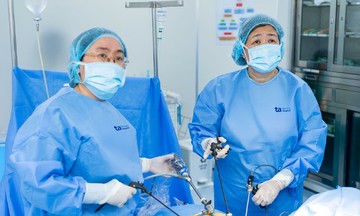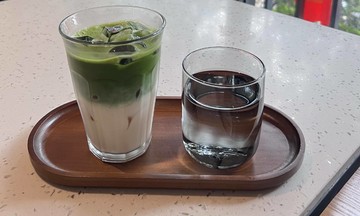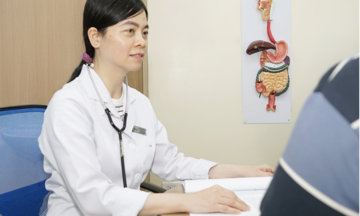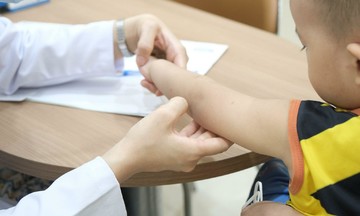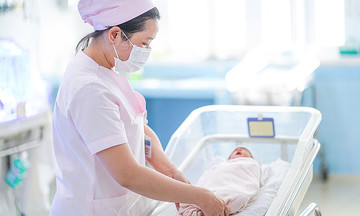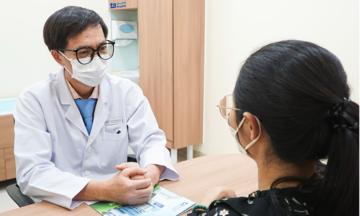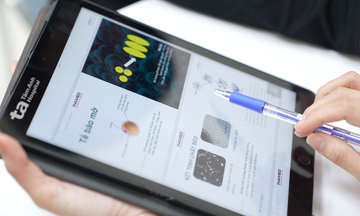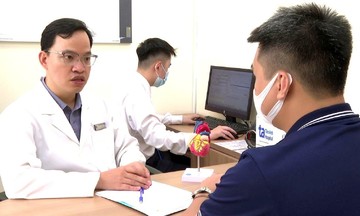Experiencing frequent bloating, indigestion, and belching, Tri, a marketing employee in Ho Chi Minh City, assumed he had indigestion due to work stress and self-medicated. After more than two weeks with no relief, he followed a relative's recommendation and visited a digestive endoscopy center for a check-up.
The gastroscopy revealed gastritis with H. pylori infection, along with widespread atrophic gastritis and intestinal metaplasia due to prolonged infection. He was classified as high-risk for stomach cancer, as nearly 80% of stomach cancer cases are linked to H. pylori. Furthermore, widespread intestinal metaplasia is considered a high-risk sign for developing stomach cancer.
The doctor also paid close attention to the colonoscopy results, which revealed a 1 cm sessile polyp, a risk factor for colon cancer (over 90% of colorectal cancers originate from polyps). During the colonoscopy, the doctor removed the entire polyp and sent it for a biopsy.
Tri’s digestive issues were thoroughly addressed by the doctors. His gastritis was managed through a standard treatment plan combined with a balanced diet to reduce irritation and aid recovery. The H. pylori infection was treated with a 14-day course of antibiotics following the latest guidelines. Four weeks after completing the medication, he was advised to return for a breath test to assess the effectiveness of the H. pylori eradication therapy. The colon polyp biopsy revealed a tubular adenoma with high-grade dysplasia on the surface. This was considered an early stage of colon cancer, but Tri could be reassured as the polyp had been completely removed during the endoscopy (the base of the excision was clear of cancerous cells).
The doctor emphasized the importance of lifestyle changes, including diet, work schedule, and self-care, to prevent recurrence. Tri was also advised to undergo a follow-up endoscopy after one year to monitor his progress. The timing of future screenings would be determined based on the results of the next endoscopy.
"I went for the endoscopy simply thinking it would cure my stomachache. I never expected to uncover so many issues. Thankfully, it was early, so nothing was too serious," Tri shared. He plans to encourage his parents and younger brother to undergo endoscopies as well. "I think everyone has digestive problems, they just don't know it yet," he added.
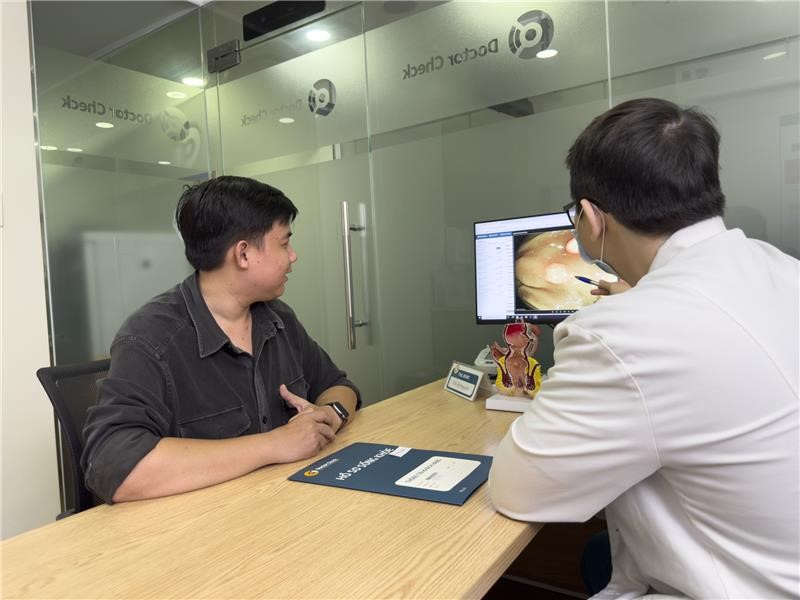 |
Tri during a follow-up appointment at the General Clinic of Doctoc Check Evidence-Based Medicine Clinic Joint Stock Company. Photo: NVCC |
According to experts, the risk of digestive tract cancer can be detected early through endoscopy. This is a dangerous disease that can be fatal, but if detected and treated early, it can be cured. According to the World Health Organization (WHO), the 5-year survival rate for patients with early-stage digestive tract cancer can reach 90%. However, if detected late, the survival rate drops to around 10%.
Screening for digestive tract cancer is an effective method for early detection. This is why Japan, despite having one of the highest rates of stomach cancer in the world, boasts a longer average life expectancy than many other countries. Their national periodic digestive screening program enables early detection of stomach cancer and significantly improves survival rates. Numerous studies published in Science Direct show that the 5-year survival rate for stomach cancer patients in Japan is 65-70%, compared to the global average of 30-35%.
Similarly, Japan's 5-year survival rate for colon cancer is also much higher than in many other countries, thanks to early detection.
Inspired by Japan's approach to digestive tract cancer screening and treatment, the General Clinic of Doctoc Check Evidence-Based Medicine Clinic Joint Stock Company (also known as Doctor Check Endoscopy Center - located at 429 To Hien Thanh Street, Dien Hong Ward, Ho Chi Minh City) performs endoscopies following Japanese standards. The minimum observation time during an endoscopy is 7 minutes to ensure no lesions are missed.
Doctors capture comprehensive images of key areas, and all images are stored in each patient's electronic medical record. This extensive imaging helps doctors compare data and assess disease progression during subsequent check-ups.
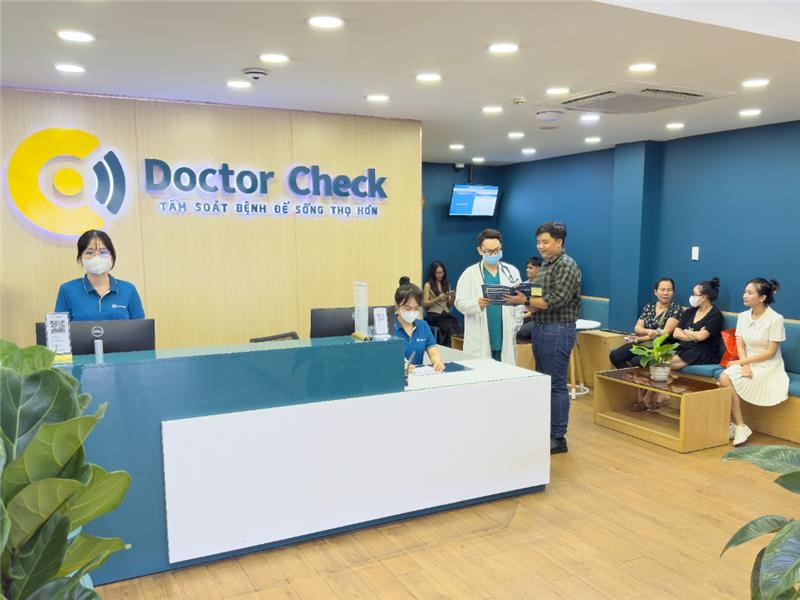 |
Doctor Check Endoscopy Center (429 To Hien Thanh, Dien Hong Ward, Ho Chi Minh City). Photo: Doctor Check |
The center utilizes state-of-the-art endoscopy systems, including the Olympus X1 and Fujifilm 7000, which incorporate advanced technology to help doctors detect potential lesions, especially small, early-stage cancerous lesions that might be missed without such equipment.
Specifically, the equipment at Doctor Check Endoscopy Center integrates AI software for fast and accurate image analysis. AI acts as a "third eye," alerting doctors to suspicious areas. The devices have enhanced imaging modes: NBI (on Olympus) and BLI, LCI (on Fujifilm), which highlight vascular structures by virtually staining endoscopic images with narrow-band light, clearly differentiating between lesions and healthy tissue. Magnification of up to 100-135 times allows doctors to enlarge tiny lesions, predict malignancy during the endoscopy, and perform precise biopsies. High-resolution 4K endoscopy monitors provide sharp, stable images even at 100-135x magnification, facilitating accurate lesion identification.
"The clinic has equipped itself with the most modern endoscopy equipment available today, which are invaluable tools for increasingly accurate endoscopy results," said Dr. Dang Nguyen Nhat Thanh Thi, who has performed over 12,500 endoscopies. The doctor added that witnessing numerous patients successfully treated for cancer thanks to early detection, living healthy lives like ordinary people, is a joy for medical professionals.
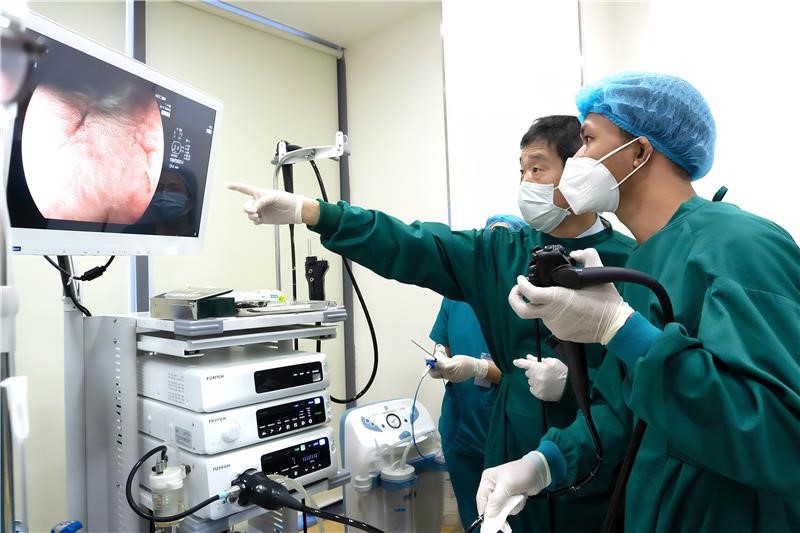 |
Doctor Check physicians receive continuous updates on endoscopy techniques from Japanese experts. Photo: Doctor Check |
Today, endoscopy is not just for those with symptoms; it's a proactive choice for long-term health. In Japan, regular digestive endoscopy is an integral part of preventive healthcare. In Vietnam, specialists recommend a gastroscopy every 3-5 years and a colonoscopy every 10 years, starting at age 40, even without apparent symptoms. Depending on the findings of the initial endoscopy, doctors may recommend earlier follow-up screenings. Early screening not only detects dangerous diseases in their initial stages but also offers more effective treatment at a significantly lower cost compared to treating late-stage diseases.
At Doctor Check Endoscopy Center, over 18,900 clients annually undergo digestive cancer screening, contributing to reducing stomach and colon cancer mortality rates in Vietnam.
Kim Anh



